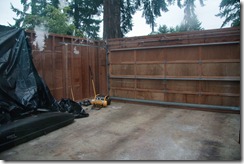Contents tagged with CodePlex
-
What's new in Orchard 1.1?
It was only three months ago that we shipped Orchard 1.0 and 1.1 is already here with some substantial improvements and many bug fixes. Let me walk you through the most important ones…
-
FluentPath 1.0
 Last Sunday, I published version 1.0 of my little FluentPath library.
Last Sunday, I published version 1.0 of my little FluentPath library. -
Building my new blog with Orchard – part 2: importing old contents
 In the previous post, I installed Orchard onto my hosted IIS7 instance and created the “about” page.
In the previous post, I installed Orchard onto my hosted IIS7 instance and created the “about” page. -
Building my new blog with Orchard – Part 1
 Several people have asked me if I would move my blog to Orchard. There are actually several challenges with this that have nothing to do with Orchard itself, but suffice it to say that right now I’m not really considering it.
Several people have asked me if I would move my blog to Orchard. There are actually several challenges with this that have nothing to do with Orchard itself, but suffice it to say that right now I’m not really considering it. -
Clay: malleable C# dynamic objects – part 1: why we need it
 When trying to build the right data structure in Orchard to contain a view model to which multiple entities blindly contribute, it became obvious pretty fast that using a dynamic structure of sorts was a must.
When trying to build the right data structure in Orchard to contain a view model to which multiple entities blindly contribute, it became obvious pretty fast that using a dynamic structure of sorts was a must. -
Orchard 0.5 is out
 Before I joined Microsoft seven years ago, I had spent a couple of years building a Web CMS. It wasn’t open-source unfortunately but the experience convinced me that most public-facing web sites would shortly use some form of CMS. I also forged strong opinions about the right level of component granularity that a CMS must implement.
Before I joined Microsoft seven years ago, I had spent a couple of years building a Web CMS. It wasn’t open-source unfortunately but the experience convinced me that most public-facing web sites would shortly use some form of CMS. I also forged strong opinions about the right level of component granularity that a CMS must implement. -
Writing the tests for FluentPath
 Writing the tests for FluentPath is a challenge. The library is a wrapper around a legacy API (System.IO) that wasn’t designed to be easily testable.
Writing the tests for FluentPath is a challenge. The library is a wrapper around a legacy API (System.IO) that wasn’t designed to be easily testable. -
FluentPath now on CodePlex
My FluentPath library is now available on CodePlex. I’ve also modified the code so that it can now be compiled against .NET 3.5SP1 and not just .NET 4.0.
-
FluentPath: a fluent wrapper around System.IO
 .NET is now more than eight years old, and some of its APIs got old with more grace than others. System.IO in particular has always been a little awkward. It’s mostly static method calls (Path.*, Directory.*, etc.) and some stateful classes (DirectoryInfo, FileInfo). In these APIs, paths are plain strings.
.NET is now more than eight years old, and some of its APIs got old with more grace than others. System.IO in particular has always been a little awkward. It’s mostly static method calls (Path.*, Directory.*, etc.) and some stateful classes (DirectoryInfo, FileInfo). In these APIs, paths are plain strings. -
Setting up a continuous integration server for a CodePlex project using TeamCity and Mercurial
 Continuous integration enables developers to have an automated way of validating the quality of their check-ins. A CI server will monitor your version control repository and on every check-in will build the project and at the very least run unit tests. If anything goes wrong (compilation error, failing test, etc.), the server will send e-mail to the team so the developer responsible for the faulty check-in can investigate and fix the problem.
Continuous integration enables developers to have an automated way of validating the quality of their check-ins. A CI server will monitor your version control repository and on every check-in will build the project and at the very least run unit tests. If anything goes wrong (compilation error, failing test, etc.), the server will send e-mail to the team so the developer responsible for the faulty check-in can investigate and fix the problem.